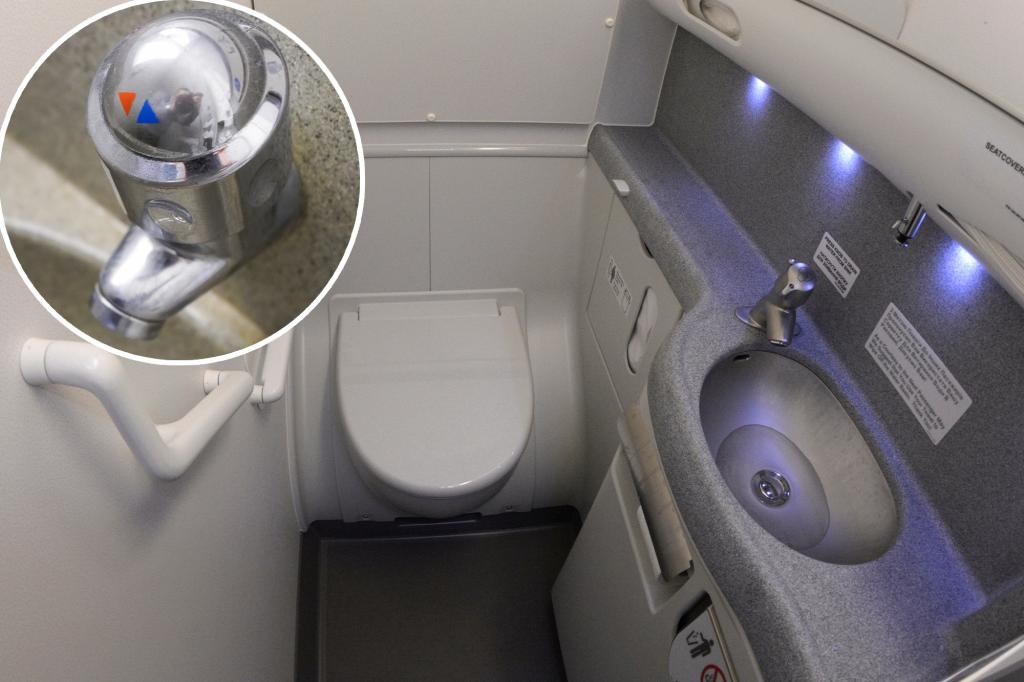Experts poo-poo the airplane loo.
Flying might feel high-tech — but beneath the surface, it can get pretty gross.
In fact, some experts warn that the water on board airplanes is so questionable, they wouldn’t even wash their hands with it.
While tray tables and overhead bins are known germ zones, it’s the airplane bathroom that deserves the most caution.
“The toilets are regularly cleaned, but the locks and door handles are not,” Josephine Remo, a flight attendant and travel blogger, told Travel and Leisure.
Even more concerning: studies show onboard water tanks may harbor harmful bacteria. A 2017 study in the Annals of Microbiology found over 50 strains of bacteria in ice used on planes.
“My takeaway from doing the research was to not drink the coffee and the tea. At all,” Charles Platkin, the author of the study and the executive director of the Hunter College NYC Food Policy Center, told Travel and Leisure.
He also echoed his team’s findings, saying that he avoids washing his hands with water as well. He uses hand wipes instead.
A former flight attendant also revealed to The Sun that the bathrooms onboard don’t have great ventilation.
“The airplane loo is essentially a cupboard, with no clean air. There is no window, and the air ventilation is poor,” the unnamed attendant said.
“This means that every time you go to the loo, not only are you breathing in the air of many others who have ‘done their business’ before you (especially if it’s a long-haul flight), but you could also be breathing in potential feces particles, circulating [in] the air after a toilet flush.”
They recommend wearing a mask when entering the bathroom — or avoiding it altogether, if possible.
If you need to brush your teeth during the flight, it’s best to use bottled water, as the expert warns that the water is unfiltered and not in the best condition.
Experts suggest packing hand sanitizer, using disinfectant wipes and being mindful of bathroom surfaces.
“I try to avoid the restroom if possible,” Shanina Knighton, a research associate professor at the Frances Payne Bolton School of Nursing at Case Western Reserve University, told Travel and Leisure, “but when I must go, I’m careful about what I touch.
“I wouldn’t want to start a vacation with a stomach bug because of unsafe water exposure,” Knighton said.
Read the full article here

